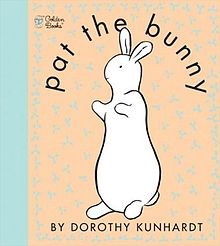Maybe Books Could Be A Little Shorter?

Sophie Gee ends her review of Mothering Sunday, the new book by Graham Swift, with the assessment that “I wasn’t sure why it was a novella, since Swift’s style and themes are so weighty, but the lush, sorrowful prose gives considerable pleasure.” This is the perfect example of one of the greatest problems of our literary age: the conflation of length with depth.
I have not read Mothering Sunday, and have no intention of doing so — I decided at the beginning of the year that from now on I would only read fiction by women (I am grandfathering in Julian Barnes, because if you think I’m going to miss the new Shostakovich novel you’re out of your mind) on the reasoning that if I’m going to give up my time to a bunch of things that never happened, that time might as well go to the gender that is considerably underrepresented in the daily attending I do to stories someone made up — but I paid attention to the reviews when it came out in Britain and they seemed generally positive; Gee is certainly welcome to dislike the book for being “inconclusive and vague,” but to suggest that another couple hundred pages would make it more fulfilling is to fall victim to the terrible bias against concision that overvalues the mammoth tree cemeteries we are supposed to revere for their word tonnage. It’s the same bias that suggests a 700-page epic is somehow better than a 200-page romp, or that someone who is good at writing short stories can only really be taken seriously if she writes a novel. It’s a dangerous, damaging idea that diminishes those who don’t waste space. A good writer can say something true in ten words, even fewer if they actually focus on what they want to express. That skill should be rewarded, not degraded.
Length is poison. Length does disservice. Length gives more room for the writer to indulge in his worst (i.e. most “writerly”) habits, incites skimming and inattentiveness on the part of the reader and generally destroys any possibility of ambiguity, which is the best kind of biguity. Why do we think something larger is more meaningful? There are any number of reasons going back hundreds of years but my own personal theory is we don’t want to acknowledge how terrible yet coherent our existence is. It’s basic. Life is hard. Childhood ends. Men are bad. Women suffer. Our struggles lack meaning. We repeat our mistakes. We die. These are things we all know whether or not we want to admit them, but it sugars the pill immensely if these very rudimentary, very obvious sentiments are hidden under 600 pages of extraneous dialogue and descriptions of what’s happening in the middle distance.
Could we please all agree to stop mistaking length for depth? If we were willing to acknowledge the virtue of brevity over the insincerity of volume, we might live in a world where we were all able to be a bit more honest about how things really work. We wouldn’t need to try to hide what we really want to say. It won’t be simple, I understand that: Too many people have too much invested, financially and positionally, in prizing the authority of bulk. They won’t be beaten easily. But couldn’t we at least try? Let’s all try. At minimum, we would be going a good way toward the goal of getting everyone to shut the fuck up a little more.
Okay, that was my argument. But how would you feel if it were this?
Sophie Gee ends her review of Mothering Sunday, the new book by Graham Swift, with the assessment that “I wasn’t sure why it was a novella, since Swift’s style and themes are so weighty, but the lush, sorrowful prose gives considerable pleasure.” Could we please all agree to stop mistaking length for depth? A writer can say something true in ten words. Let’s all try to shut the fuck up a little more.
It’s MUCH BETTER, right? Thank you.
